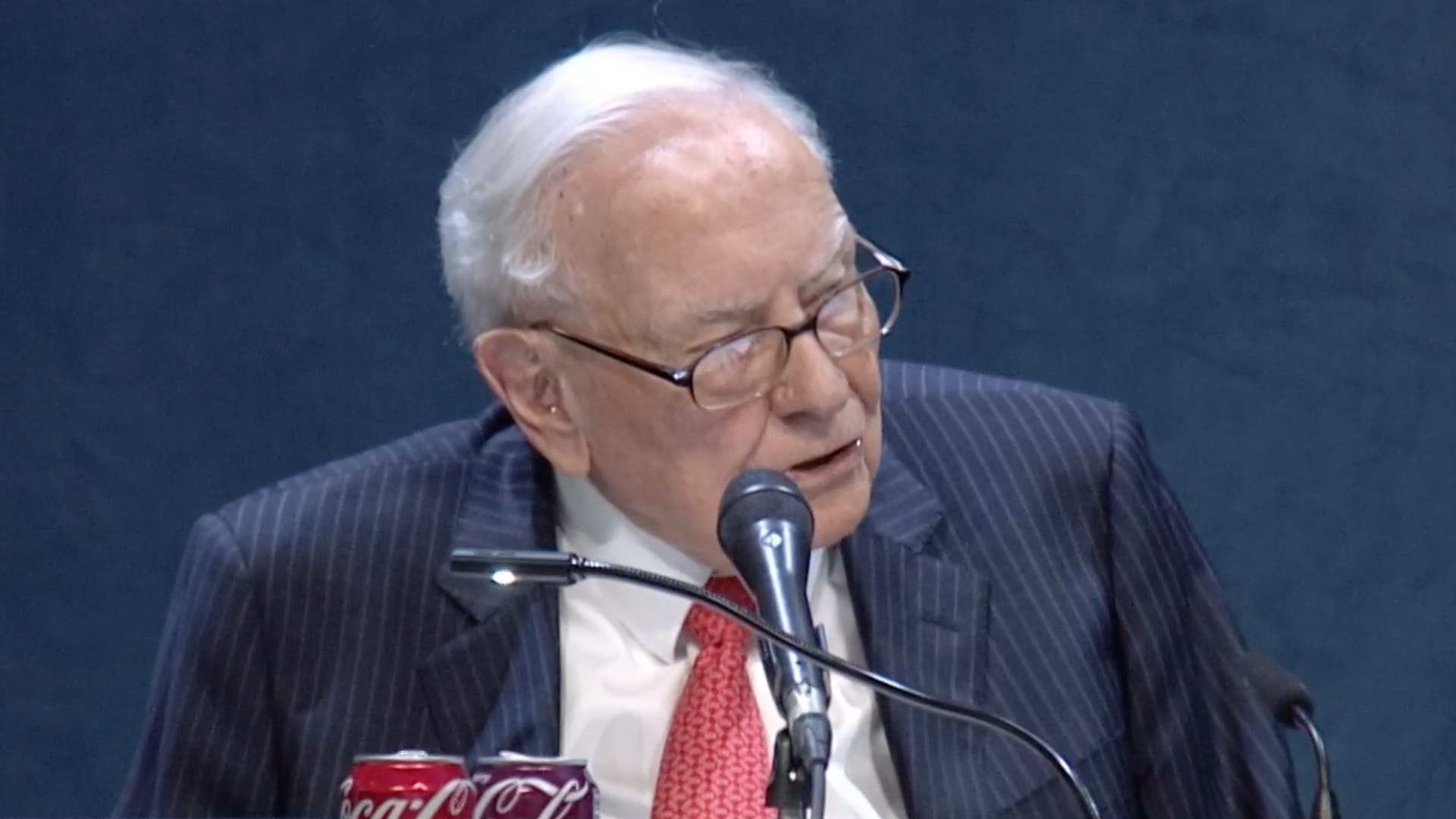Berkshire Hathaway ‘s second-quarter earnings report had a few surprising elements that caused shares to fall Monday, but few Wall Street analysts are abandoning Warren Buffett’s conglomerate. Berkshire’s operating profit from the company’s wholly-owned businesses, including insurance and railroads, dipped 4% year-over-year, to $11.16 billion in the second quarter. The Omaha-based conglomerate again issued a stern warning of the effect of President Donald Trump’s tariffs and the potential impact on its various businesses. Kraft Heinz write-down Most notably, Berkshire took a rare write-down of its underperforming Kraft Heinz stake. The conglomerate for the first time reduced the carrying value of its 27% position by $3.8 billion. The move came as reports emerged in trade journals and elsewhere that the Jello and Oscar Mayer hot dog maker has been eyeing a spinoff of its grocery business . Two Berkshire executives resigned as directors from Kraft Heinz’s board in May. “On May 20, 2025, Kraft Heinz announced that it was evaluating potential strategic transactions to enhance shareholder value … Given these factors, as well as prevailing economic and other uncertainties, we concluded that the unrealized loss, represented by the difference between the carrying value of our investment and its fair value, was other-than-temporary,” Berkshire said in the earnings report released Saturday. Kraft Heinz has been a laggard for Berkshire. Since its peak of $62 in 2015, Kraft Heinz shares have been cut by more than half and currently trade near $27 apiece. “We would expect a modestly negative reaction to the Kraft Heinz charge,” UBS’s analyst Brian Meredith said in a research note. In 2019, Buffett told CNBC his conglomerate paid too much for Kraft, noting he might have misjudged certain aspects of the company. “I was wrong in a couple of ways about Kraft Heinz,” Buffett tells CNBC. “We overpaid for Kraft.” Buffett said he did not overpay for Heinz, however. In 2013, Buffett teamed up with Brazilian private equity company 3G Capital to acquire Heinz. The billionaire later worked with 3G to help finance Heinz’s $49 billion merger with Kraft Foods Group in 2015. No buybacks Berkshire is still not buying back its own stock, and the conglomerate didn’t repurchase any stock in the first half of 2025, through July 21. Many had speculated that Berkshire might have started repurchasing shares amid a sizable correction in the stock. Berkshire shares have fallen about 15% from their all-time high in early May, right before the 94-year-old Buffett announced that Greg Abel is taking over as CEO at the end of 2025. BRK.A YTD mountain Berkshire Hathaway Class A shares year to date “While we believe Mr. Abel will build credibility with investors over time, we think near-term catalysts for BRK are increased investment activity, a potential large acquisition and share repurchases,” Kyle Sanders, analyst at Edward Jones, said in a note. “None of those happened this quarter, which we view as somewhat disappointing.” Buffett’s cash hoard of $344.1 billion remained near a record high. Berkshire was a net seller of stocks for the 11th quarter in a row, dumping $4.5 billion in equities in the first six months of 2025. Strong Geico and BNSF results While operating earnings dipped from last year’s level, analysts cheered better-than-expected results at BNSF, the former Burlington Northern Santa Fe railroad, and continued strong results at auto insurer Geico. Pre-tax underwriting earnings at Geico rose slightly, to $1.8 billion, in the second quarter, while BNSF’s operating earnings jumped nearly 20% to $1.5 billion. “Geico continues to grow and remains very profitable,” Meredith at UBS said. “BNSF beat our expectations on better-than-expected operating margins at 35.2% (vs. UBSe at 33.0%) with lower fuel costs. The unit volume was also above our expectations.” Keefe Bruyette & Woods analyst Meyer Shields hiked his 12-month price target on Berkshire to $740,000 from $735,000, representing 7% upside where the stock was trading early Monday, at about $692,000. Berkshire’s current valuation “fully reflects its earnings prospects and balance sheet strength amidst ongoing macro uncertainty and the emerging management succession risk (which will probably impact investors’ view of Berkshire more than it will actual operations) in Mr. Buffett’s recently announced retirement plans,” Shields said.





